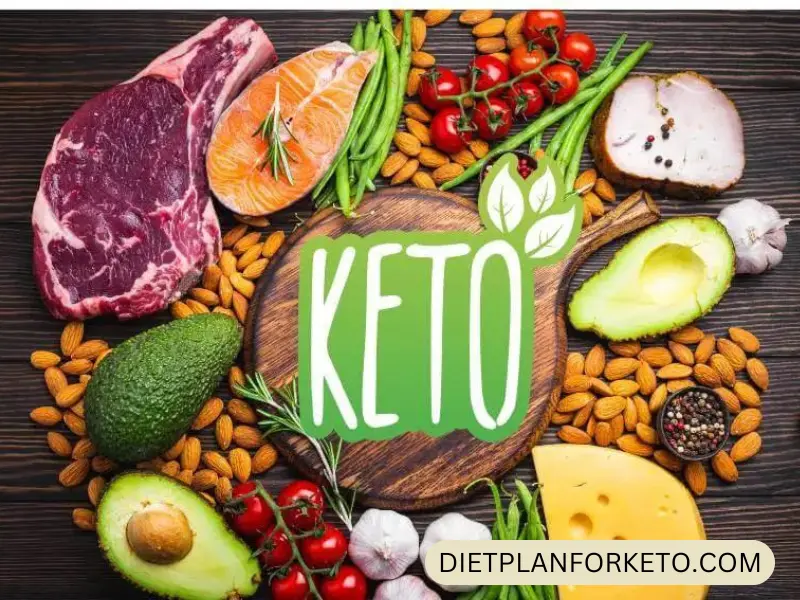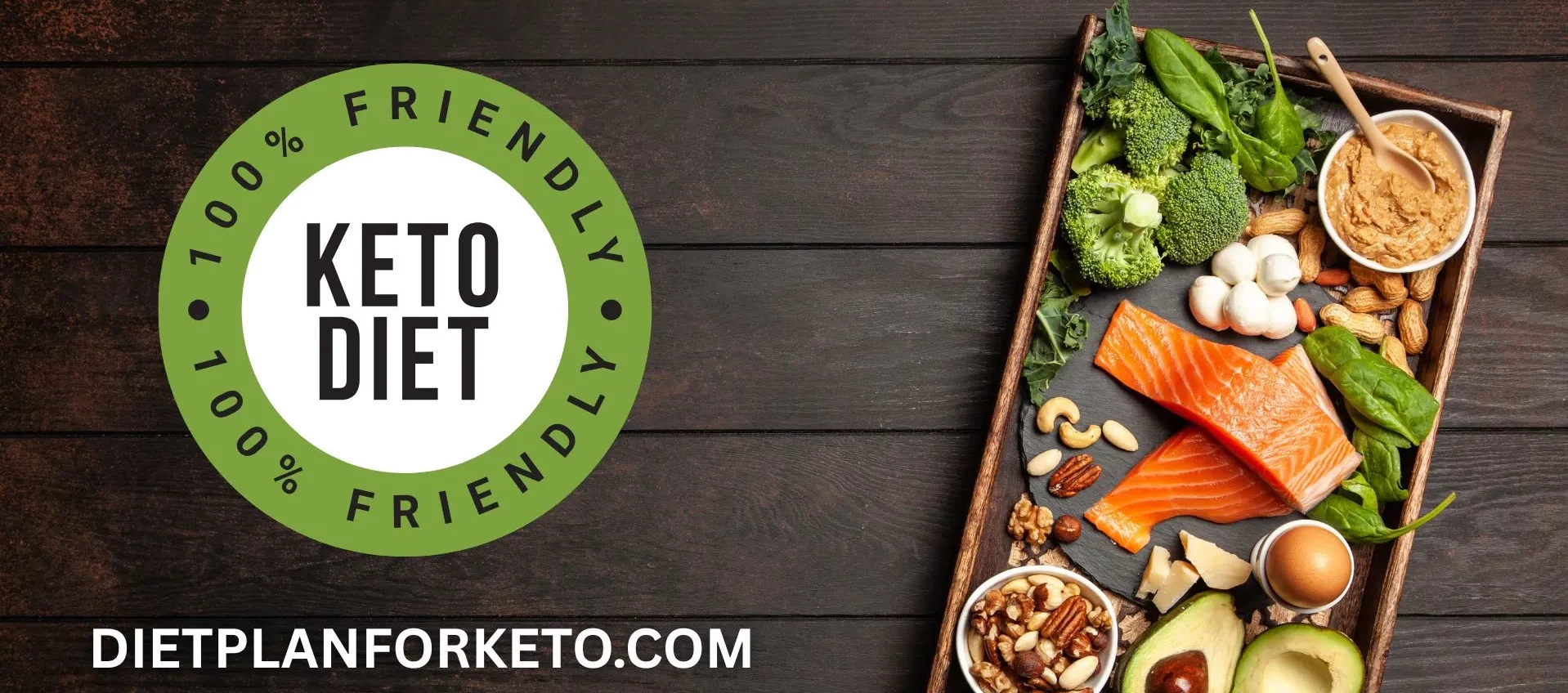The ketogenic (or keto) diet has surged in popularity due to its remarkable results in weight loss, enhanced energy levels, and improved mental clarity. One key aspect of the keto diet is drastically reducing carbohydrate intake and replacing it with fats.
While the focus is often on high-fat foods, vegetables play a critical role in the success of a well-balanced keto diet.
This guide will take you through the top 10 keto-friendly vegetables that not only help you maintain ketosis but also provide essential nutrients for your overall health.
By the end of this guide, you’ll have a solid understanding of how to incorporate these vegetables into your meals for maximum flavor and nutritional benefit.
What Makes Vegetables Keto-Friendly?
Before diving into the list of the top 10 keto-friendly vegetables, it’s important to understand what makes a vegetable suitable for the keto diet.
1. Low Net Carbohydrates
The ketogenic diet emphasizes keeping carb intake low (typically between 20-50 grams per day). Vegetables that are keto-friendly tend to have a low glycemic index and a small amount of net carbs—the total carbs minus fiber. Fiber is crucial because it doesn’t impact your blood sugar and won’t knock you out of ketosis.
2. Nutrient Density
Keto-friendly vegetables are packed with essential vitamins, minerals, and antioxidants. These nutrients support your immune system, promote digestion, and help maintain heart and brain health—all without the blood sugar spikes that come from starchy or sugary vegetables.
3. High in Fiber
While fiber doesn’t count toward net carbs, it’s still essential for digestion and gut health. Keto-friendly vegetables offer a good dose of fiber to prevent constipation, balance blood sugar, and keep you feeling full.

Examples of Keto-Friendly Vegetables
Some examples of keto-friendly vegetables include spinach, kale, and zucchini, all of which will be explored in more detail below.
The Importance of Vegetables in a Keto Diet
Some people mistakenly believe that the keto diet means eliminating vegetables entirely, but this couldn’t be further from the truth. While certain high-carb vegetables like potatoes and carrots may not fit into a strict keto plan, there are many low-carb, nutrient-dense vegetables that should be part of every ketogenic meal plan.
1. Nutritional Balance
Vegetables provide important micronutrients—such as potassium, magnesium, and vitamins C and K—that are often lacking in keto meals. These nutrients play a role in muscle function, blood pressure regulation, and maintaining a healthy immune system.
2. Health Benefits
Vegetables offer a wide range of health benefits:
- Fiber: Helps promote healthy digestion and regular bowel movements.
- Antioxidants: Protect cells from oxidative stress and inflammation.
- Anti-inflammatory: Many keto-friendly vegetables have natural anti-inflammatory properties that reduce chronic inflammation, a common issue in modern diets.
- Gut Health: The fiber in vegetables helps to feed healthy gut bacteria, which is essential for overall well-being.
3. Variety
Incorporating a wide variety of vegetables into your keto meals ensures that you’re getting a broad spectrum of nutrients. Each vegetable has its own unique profile, so eating a variety of them helps cover all your nutritional bases.
Top 10 Keto-Friendly Vegetables
Now that we understand the importance of vegetables on a keto diet, let’s dive into the top 10 keto-friendly vegetables you need to include in your meals.
1. Spinach
- Net Carbs: 1g per 100g
- Health Benefits: Spinach is a powerhouse of nutrients, including iron, magnesium, and vitamin K. It’s incredibly low in carbs, making it one of the best leafy greens for a keto diet. Its high levels of antioxidants help reduce inflammation, while iron supports blood health.
- Usage: Add spinach to salads, blend it into smoothies, or sauté it with garlic for a nutrient-packed side dish.
2. Kale
- Net Carbs: 3g per 100g
- Health Benefits: Kale is another low-carb leafy green that’s loaded with vitamin C, antioxidants, and calcium. It’s known for its potential to boost heart health, thanks to its high fiber and potassium content. Kale is also excellent for bone health due to its calcium and vitamin K levels.
- Usage: Make crispy kale chips, toss it into soups, or blend it into green juices.
3. Zucchini
- Net Carbs: 2g per 100g
- Health Benefits: Zucchini is highly versatile and very low in carbs. It contains vitamin A, potassium, and antioxidants, which are great for vision, heart health, and reducing oxidative stress. Zucchini can be used as a substitute for high-carb pasta in keto recipes.
- Usage: Spiralize zucchini into “zoodles” for a keto pasta alternative, or roast it with olive oil and spices.
4. Avocado
- Net Carbs: 2g per 100g
- Health Benefits: Avocados are unique on this list because they’re technically a fruit, but their ultra-low carb count and high healthy fat content make them perfect for keto. Packed with heart-healthy monounsaturated fats, fiber, and potassium, avocados help improve cholesterol levels and support weight management.
- Usage: Spread avocado on keto toast, blend into smoothies, or slice into salads for added creaminess.
5. Cauliflower
- Net Carbs: 2g per 100g
- Health Benefits: Cauliflower has become a staple in the keto community due to its ability to replace high-carb foods like potatoes, rice, and even pizza crust. It’s rich in vitamin C, fiber, and antioxidants, supporting immune health and digestion.
- Usage: Mash cauliflower as a potato substitute, make cauliflower rice, or use it to make keto-friendly pizza crusts.
6. Broccoli
- Net Carbs: 4g per 100g
- Health Benefits: Broccoli is a cruciferous vegetable known for its cancer-fighting properties. It’s loaded with vitamins C and K, fiber, and antioxidants. It’s great for reducing inflammation and supporting digestive health.
- Usage: Roast broccoli with olive oil, add cheese for a delicious side, or steam and blend into soups.
7. Cucumber
- Net Carbs: 2g per 100g
- Health Benefits: Cucumber is a refreshing, hydrating vegetable that’s very low in carbs. It’s high in antioxidants and promotes hydration, making it ideal for summer keto salads and snacks.
- Usage: Add cucumbers to salads, use them in keto wraps, or enjoy as a crunchy snack with some salt.
8. Brussels Sprouts
- Net Carbs: 5g per 100g
- Health Benefits: Brussels sprouts are nutrient-packed, providing high levels of fiber, vitamin C, and vitamin K. They also support gut health by promoting healthy digestion and fighting inflammation.
- Usage: Roast Brussels sprouts with olive oil and bacon for a savory side dish, or sauté them with garlic and butter.
9. Bell Peppers
- Net Carbs: 3-6g per 100g, depending on the color
- Health Benefits: Bell peppers are packed with vitamin C and antioxidants. Red, yellow, and orange varieties have slightly more carbs but are still keto-friendly in moderation. Their vibrant colors are a sign of their high antioxidant content, supporting skin health and reducing oxidative damage.
- Usage: Stuff bell peppers with a keto-friendly filling, slice them into salads, or use them as a crunchy snack with guacamole.
10. Asparagus
- Net Carbs: 2g per 100g
- Health Benefits: Asparagus is another great low-carb vegetable option. It’s rich in folate, vitamin C, and vitamin K, and it promotes heart health by reducing blood pressure and supporting digestion.
- Usage: Grill asparagus with olive oil and lemon, or wrap it in bacon for a keto-friendly appetizer.
Tips for Incorporating More Keto-Friendly Vegetables Into Your Meals
1. Meal Prepping
Prepare your vegetables in advance to make keto-friendly meals easier during the week. You can chop or roast vegetables ahead of time and store them in the fridge for quick access.
2. Creative Uses
Use vegetables in unique ways to keep your meals exciting:
- Add spinach to keto smoothies for an extra nutritional boost.
- Create vegetable-based snacks like kale chips or cucumber slices with guacamole.
- Try vegetable noodles like zucchini or spaghetti squash instead of traditional pasta.
3. Substituting High-Carb Foods
Vegetables like cauliflower and zucchini can easily replace carb-heavy foods in many recipes. Try cauliflower rice, mashed cauliflower, or zucchini lasagna to cut carbs without sacrificing flavor.
4. Spice it Up
Enhance the flavor of your keto-friendly vegetables with herbs and spices. Garlic, rosemary, basil, and oregano are all keto-friendly options that add variety to your meals without adding carbs.
How to Shop for Keto-Friendly Vegetables
1. Fresh vs. Frozen
Both fresh and frozen vegetables can be excellent choices for keto. Fresh vegetables are best for immediate consumption, while frozen options are convenient for long-term storage and often just as nutritious.
2. Seasonality
Purchase vegetables that are in season for better taste and nutrition. Seasonal vegetables are fresher, more flavorful, and often more affordable.
3. Organic vs. Conventional
If you’re concerned about pesticides, consider buying organic for the “Dirty Dozen” vegetables, which tend to have higher pesticide residues. Vegetables like spinach and bell peppers may be worth buying organic.
Conclusion
Including these top 10 keto-friendly vegetables in your diet will not only help you stay in ketosis but also ensure you’re getting a wide array of nutrients essential for overall health. Vegetables like spinach, kale, and cauliflower are nutrient-dense, low in carbs, and easy to incorporate into a variety of delicious meals.
Don’t shy away from adding more vegetables to your keto diet—they are essential for balance, long-term health, and keeping your meals flavorful and satisfying.
Challenge: This week, try incorporating at least one of these keto-friendly vegetables into each meal and discover how tasty and satisfying a low-carb, vegetable-rich diet can be!
